Verbs of thought in 21st century literatura: Dante Medina
Verbs of thought in 21st century literatura: Dante Medina
Contenido principal del artículo
The colloquial language increases with expressions, mostly verbs of thought. Why does this happen? It is precisely the study of our analysis: in the last two centuries the pragmaticalization of expressions has grown disproportionately. In the twentieth first century literature, we see how in Latin America a way of saying things is with true semantic meaning broken. In literature, verbs that express mental processes represent new realities, without making the previously existing vocabulary a minority. The most relevant verbs of thought are guess, believe, idea, consider, decide, know, remember, wonder, realize, forgive, among others. Our analysis is aimed at what is the current use that would be considered correct. This study includes neologisms —modern verbs of thought— and the appropriate treatment of the use in the Mexican writer Dante Medina. How and why do the study of pragmatics in literature? Literary pragmatics probably uses “verisimilitude adverb” linguistically correct communication to designate actions as they should be, it is when the philological current enters, and the representation of poetic unknowns begin to be interesting with the use of verbs of thought. We allude in this study that together with semantics and syntax, pragmatics make up a gang that leads us analyze Medina’s semiotic theory applied to the language of his literature and verbs. We take advantage of Modern pragmatics that offers economy in language: it is logical and precise, to define the different functions that semantics and syntax have in the verbs of thought to manifest true meanings.
Descargas
Detalles del artículo
Amoretti Hurtado, María, Revista de Filología y Lingüística de la Universidad de Costa Rica, “En el palabrario de Medina”, vol. 25, 1999, pp. 167-177.
Bohren, Anna, What is language Acquisition Theory? 3 Top theories of how we learn to communicate. From: https://blog.cognifit.com/language-acquisition-theory/
Cowan, H. (1965). SYNTAX. In Grammar of the Sentani Language: With Specimen Texts and Vocabulary (pp. 51-67). Brill. Retrieved June 28, 2022, from http://www.jstor.org/stable/10.1163/j.ctvbqs8jg.8 DOI: https://doi.org/10.1163/9789004286757_006
D. Malone, (2002), Theories and Research of Second Language Acquisition, MLE WS. Bangkok.
Dubois, Christophe, “Lingüísticas de la Creación de una ‘Lengua Nueva’ en las Niñoserías de Dante Medina”, journal El Occidental, Guadalajara, 1 de junio, 1991, p. 10.
Duchet, Claude, « Pour une socio-critique ou variations sur un incipit », Littérature, n°1, février 1971, p. 5-14. Online URL : https://www.persee.fr/doc/litt_0047-4800_1971_num_1_1_2495 DOI: https://doi.org/10.3406/litt.1971.2495
Epstein, R. (1991). Skinner, Creativity, and the problem of spontaneous behavior. Psychological Science, 2 (6), 362-370. Retrieved July 18, 2022 from http://www.jstor.org/stable/40062712 DOI: https://doi.org/10.1111/j.1467-9280.1991.tb00168.x
E. Schütz, Ricardo. Stephen Krashen’s Theory of Second Language Acquisition. From:https://www.sk.com.br/sk-krash-english.html#:~:text=According%20to%20Krashen%20there%20are,they%20acquire%20their%20first%20language.
Fromkin, Victoria, et al. An introduction to language. (2003). Seventh edition. Thompson Wadsworth.
Genesis 11 :1-9. The First Book of Moses, Called Genesis.
Hedeager, Ulla, Is language unique to the human species? Retrieved from: www.columbia.edu
Higginbotham, J. (1982). Noam Chomsky’s Linguistic Theory. Social Research, 49. (1), 143-157. Retrieved June 19, 2022, from http://www.jstor.org/stable/40970856
Kanjirakkat, J. (2014). Contextualising Language Studies: A Response. Economic and Political Weekly, 49(5), 75-77. Retrieved June 24, 2022, from http://www.jstor.org/stable/24479151
Lemetyinen, Henna, Language Acquisition, in 2012, from: https://www.simplypsychology.org/language.html#:~:text=Skinner%20argued%20that%20children%20learn,value%20of%20words%20and%20phrases.
McLeod, Saul. (2018). Jean Piaget’s Theory and Stages of Cognitive Development. Retrieved from: https://www.simplypsychology.org/piaget.html
Miller, G. (2020). Science Fiction and Psychology. Liverpool: Liverpool University Press. Retrieved from www.jstor.com
Moore, J. (2005). Some Historical and Conceptual Background to the Development of B.F. Skinner's "Radical Behaviorism" — Part 2. The Journal of Mind and Behavior, 26(1/2), 95-123. Retrieved June 1, 2022, from http://www.jstor.org/stable/43854054
Nguyen, Van Han, The relationship between language and gender: a case study in Vietnamese. Global Journal of Interdisciplinary Social Sciences, 2014. Global Institute for Research & Education.
Ostler, N. (2011). Language maintenance, shift, and endangerment. In R. Mesthrie (Ed.), The Cambridge Handbook of Sociolinguistics (315-334). New York: Cambridge University Press. DOI: https://doi.org/10.1017/CBO9780511997068.024
Parra, Marina. La hipótesis Sapir-Whorf. Deparment of Linguistics. National University of Colombia. Retrieved from: http://bdigital.unal.edu.co/30627/1/29488-105881-1-PB.pdf
Putnam, L., & Chomsky, N. (1994). An interview with Noam Chomsky. The Reading Teacher, 48 (4), 328-333. Retrieved July 19, 2022. From http://www.jstor.org/stable/20201430
Sturtevant, E. (1922). The Origin of Language. The Classical Weekly, 16(5), 34-38. doi:10.2307/4388384 DOI: https://doi.org/10.2307/4388384
Theories of language acquisition. Retrieved from: https://www.montsaye.northants.sch.uk/assets/Uploads/English-Language-Summer-Work-2.pdf
TRAN-Hoang-Thu, Gender and Language Use in the ESL Classroom, Alliant International University, San Diego, California.
Verriour, P. (1985). Drama, distance, and the Language Process. Language Arts, 62 (4), 385-390. Retrieved from www.jstor.com. Accessed June 10, 2022. DOI: https://doi.org/10.58680/la198525836
Vigors, Nicholas Aylward, (1827). The ancestry of Fenius Farsaid Fenius Farsaid. Dublin Institute of Advanced Studies.
Voxy, (2012). Do Animals have a language? Retrieved from: https://voxy.com/blog/2012/04/do-animals-havealanguage
Wilcox, S. (2001). Searching for Language: Process, Not Product. Sign Language Studies, 1 (4), 333-343. Retrieved from www.jstor.com. Accessed June 10, 2022. DOI: https://doi.org/10.1353/sls.2001.0021
Zavala, Lauro, Manual de Análisis Narrativo: literario, cinematografía, intertextual, ed. cit., p. 54.










